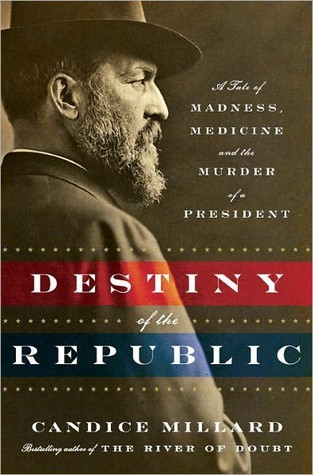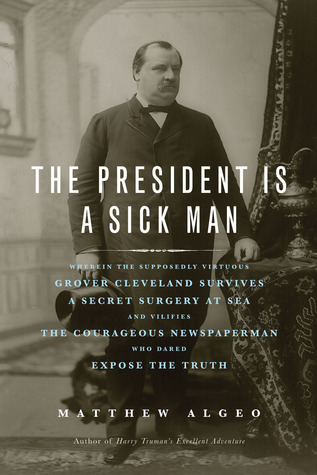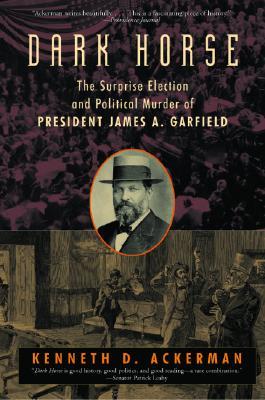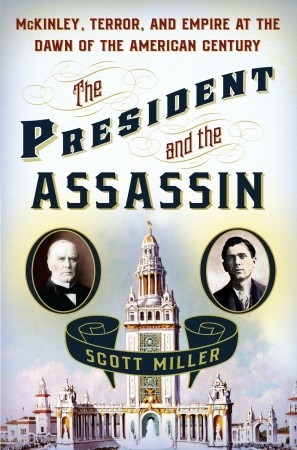Title: Destiny of the Republic
Author: Candice Millard
Page Count: 339 pages
Genre: Biography, Nonfiction
Tone: Detailed, Compelling
Summary:
James A. Garfield was one of the most extraordinary men ever elected president. Born into abject poverty, he rose to become a wunderkind scholar, a Civil War hero, and a renowned and admired reformist congressman. Nominated for president against his will, he engaged in a fierce battle with the corrupt political establishment. But four months after his inauguration, a deranged office seeker tracked Garfield down and shot him in the back. But the shot didn’t kill Garfield. The drama of what happened subsequently is a powerful story of a nation in turmoil.
SPOILER WARNING:
These book discussion questions are highly detailed and will ruin plot points if you have not read the book.
Questions composed by MPPL Staff
The Library is happy to share these original questions for your use. If reproducing, please credit with the following statement: 2015 Mount Prospect Public Library. All rights reserved. Used with Permission.
1. When you first saw the cover and learned the subject, what expectations did you have for your reading experience?
2. You are at a party and mention you read this book. Someone asks you what was so interesting about President Garfield. What would you answer?
3. What was better about living in that time than now? What was worse? Would you swap?
4. Let’s talk about Garfield’s life. At the opening of Destiny of the Republic, Millard claims that Garfield, born into “desperate poverty” overcame the odds with a passionate love of learning. If his mother had not been an educated woman herself, would this still have been possible just based on values and interest?
5. Canal drivers were considered a pretty rough crowd. If we could look in a crystal ball and see that someone like this would become our future president, would you be full of wonder or alarm?
6. James marries fellow student Lucretia Rudolph. Even in their courtship, James has deep concerns about what he sees as Lucretia’s lack of demonstrativeness. A few years into their marriage, James has an affair, which he confesses. In this instance, has he been basically honest or dishonest?
7. How would you describe Lucretia Rudolph Millard?
8. Why do you think Lucretia went through with a marriage to Garfield when she was afraid that he was marrying her out of a sense of duty?
10. During the Civil War, what did Millard show us of Garfield’s talents and character?
11. What was Garfield’s stance on black civil rights? Do you think things would have been different for African Americans if he had been able to fulfill his presidency? Why or why not?
12. Garfield did not run for US senator, but got that seat. He did not run for President, but got nominated. In his stirring speech, for which the book is named, Garfield says that, “not here… is the destiny of the republic to be decreed for the next four years…but by four million republican firesides.”
How much do you agree with his description of how the public decides on a president
A president is chosen by…
-thoughtful voters, with their wives and children around them.
-voters with the calm thoughts inspired by love of home and country.
-voters with the history of the past and the hopes of the future in mind.
-voters with reverence for the great men who have adorned and blessed our nation in days gone by burning in their hearts.
13. When he wraps up with, “Who do we want?” and a voice shouts, “We want Garfield!” do you think there was anything he could have done to shut down his nomination?
14. Would it be possible any more for a candidate to sit out his campaign?
15. What leaders would people travel great distances to hear speak? Do we think of anyone any more as wise?
16. When Garfield was elected, he felt sad. Why do you think he felt sad?
17. A good deal of time is spent on Alexander Graham Bell. What did you learn about him?
18. Bell was clearly pretty driven and intense: insisting on not being interrupted, resisting sleep, playing piano late late at night, but also very smart, caring, committed to the well being of the deaf. Did his wife have a catch or a lemon for a husband?
19. It’s interesting that Bell would blame his neglect for his infant son’s death and then throw himself into his work. Do you think his work ethic was a free choice or a compulsion?
20. Bell was devoted to helping save the president. Can you think of other people, famous or not, with that sense of commitment?
21. Millard also spends a lot of time on Charles Gitteau. Was this necessary? What aspects of Gitteau’s life stand out in your mind?
22. Both Gitteau and Garfield had one thing in common. They had been spared drowning and felt it had been through divine intervention. How did it impact their lives?
23. Do you agree that Gitteau was insane? If yes, then do you think his life should have been spared?
24. Who do you think is more morally responsible for Garfield’s death? Dr. Bliss or Charles Gitteau?
25. Dr. Bliss was clearly not open to new ideas from Europe. Could you see the same thing happening today? Do you think the American medical establishment is open to ideas from other countries or healing traditions?
26. What particularly stands out about Garfield’s time and treatment after he was shot? What feelings did you have from the time of his being shot until he dies?
27. Describe Vice President Arthur. Did he deserve the hatred that came his way after Garfield had been shot? There are many passages that describe him crying. Was your impression that he was crying for Garfield or himself? Did you expect him to be the kind of president he was?
28. The mysterious Julia Sand writes letters to Arthur, giving him a very needed pep talk. Who would you most like to encourage? On the flip side, would you enjoy having a mystery letter writer advise you or would you find it creepy?
29. How did the country respond to Garfield’s shooting?
30. There are two moments of silence described after the shooting. One is the agreement to keep the news criers and people silent so the Garfield boys won’t learn of the shooting while traveling. The next is the silent pushing of Garfield’s train car up the hill to Elberon. Can you think of a public moment of spontaneous quiet?
31. On one of the last days of his life, Garfield asks Rockwell, “’Do you think my name will have a place in human history?’ ‘Yes,’ his friend replied,’ a ‘grand one, but a grander place in human hearts.'” (p. 264) If you had to choose, which would you prefer: to leave a legacy that impacts generations to come, or to be embedded in the hearts of the currently living?
32. How do you judge the quality of a historical retelling? By your own standards, how would you rate this book?
Other Resources:
- Lit Lovers Discussion Questions
- NPR interview on Garfield’s death
- New York Times book review
- Discussion experience of Destiny of the Republic
- More Resources curated by Mary Riley Styles Library
Readalikes:
- The President is a Sick Man by Matthew Algeo
- Dark Horse by Kenneth D. Ackerman
- The President and the Assassin by Scott Miller





